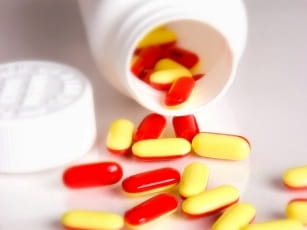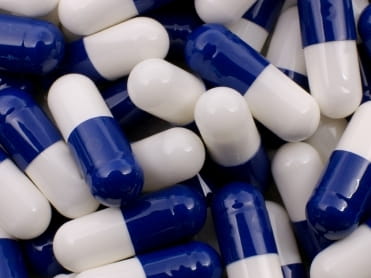Acetaminophen: Take it safely

The Bottom Line
Acetaminophen is a very safe drug to take according to label instructions. In overdose, too much acetaminophen can damage the liver. In fact, acetaminophen overdose is an important cause of liver failure and liver transplants in the US.

What is acetaminophen?
Acetaminophen, also called paracetamol, is a pain reliever and fever reducer. Many people take this medication for headaches, fevers, muscle pain, arthritis, colds, flu, and more. The most widely recognized brand of acetaminophen is Tylenol®, but there are hundreds of products and many brands that contain acetaminophen.
What medicines contain acetaminophen?
Acetaminophen is available as a single-ingredient over-the-counter medication (for example, in Tylenol®). It’s also available in combination medications for pain or for colds and flu.
Combination narcotic pain medications may contain acetaminophen, for example Percocet® and Vicodin®. People who take narcotic pain medications may develop a tolerance to these products, meaning that they need to increase their doses to get adequate pain relief. When individuals increase their dose of combination narcotic pain medications, they are often taking increasing amounts of acetaminophen, which can result in harmful health effects.
Acetaminophen is also found in many over-the-counter cold and flu medications. Check the label or ask your pharmacist or doctor if you don’t know whether a medication contains acetaminophen. Take no more than the recommended maximum dose per day. If the recommended dose doesn't control your pain, fever, or cold symptoms contact your health professional instead of taking more. It’s important not to take too much acetaminophen.
Is acetaminophen safe?
Experts agree that acetaminophen is a very safe drug when taken according to label instructions. However, a side effect of taking too much acetaminophen is liver damage. In fact, acetaminophen poisoning is the leading cause of acute liver failure in North America, Europe, and Australia.
There are several reasons why someone might take an overdose of acetaminophen:
- People who take too much on purpose to hurt themselves account for some overdoses.
- Others don't pay attention to drug labels and inadvertently take multiple medications with the same acetaminophen ingredient. Someone with a cold or the flu, for example, might take a cold medicine, a pill for headache, and a night-time sleep aid – all containing acetaminophen.
- Someone who took the maximum daily dose for several days, without checking with a health professional, could also be at risk for a dangerous overdose.
- People who drink alcohol regularly could be at risk for an unintentional overdose.
- Children are at risk when caregivers confuse the types of pediatric preparations and give too much, use household spoons instead of medicine cups or droppers, or use the wrong formulation, for example by giving adult acetaminophen to children.
Acetaminophen vs. Ibuprofen, Aspirin, and Naproxen
While used for similar purposes, acetaminophen is not a non-steroidal anti-inflammatory drug (NSAID). In other words, acetaminophen is not the same as ibuprofen, aspirin, or naproxen. NSAIDs have a different mechanism of action than acetaminophen. Ask your doctor or pharmacist whether acetaminophen or an NSAID is right for you.
Is it safe to alternate Tylenol® and ibuprofen?
Although many people treat pain and fever by alternating acetaminophen and ibuprofen, this practice is not always safe. Some research suggests that the combination of acetaminophen and ibuprofen may cause kidney problems in children who are dehydrated. In addition, parents may be confused by the differences in dosing intervals. In one study from 2007, 67% of parents surveyed indicated that they treated their child’s fever by alternating acetaminophen and ibuprofen. Although the majority of these parents reported that their child’s doctor recommended alternating these medications, there was extreme variability in how the medications were alternated, with dosing intervals varying from every 2 hours to every 6 hours. Before alternating acetaminophen and ibuprofen, talk to your doctor or your child’s pediatrician about how to safely use these medications in alternating doses.
Is it safe to take acetaminophen during pregnancy?
Acetaminophen is one of the most common medications used during pregnancy and the main pain medication that pregnant women can use. A few studies of unrelated children found a weak association between women who used acetaminophen while pregnant and autism, preterm birth, and ADHD. However, studies involving only siblings, which is a more rigorous experimental design for neurodevelopmental conditions, found no association, as did most studies involving unrelated children. One interpretation of these different findings is that some women are using acetaminophen to treat undiagnosed conditions, and those conditions may be the source of the increased the risk of neurodevelopmental conditions. The current position of the American College of Obstetricians and Gynecologists, the American College of Medical Toxicology, the Society for Maternal-Fetal Medicine, the American Academy of Pediatrics, and the Society for Developmental and Behavioral Pediatrics is that acetaminophen is safe for pregnant women to use as an occasional medicine.
What happens if you overdose on acetaminophen? Signs and symptoms of acetaminophen overdose.
The initial signs and symptoms of acetaminophen overdose are non-specific and include nausea, vomiting, and diffuse abdominal pain. These symptoms may progress to include right-sided abdominal pain, jaundice, and confusion. In severe cases, liver failure, kidney problems, coma and death can occur. Fortunately, most people who develop liver injury after acetaminophen poisoning recover.
How much acetaminophen can I take for a toothache?
To treat toothache, headache, arthritis, or other painful conditions, take acetaminophen as directed on the package label. Dosing of acetaminophen differs based on the type of product (for example, regular strength, extra strength, or powder formulation) and the age of the person taking the medication.
What to do if someone takes too much acetaminophen.
If someone may have taken too much acetaminophen, use the webPOISONCONTROL® online tool for guidance or call Poison Control at 1-800-222-1222 right away. Expert help is available 24 hours a day to help figure out if you need treatment. If so, poison specialists will work with the emergency room staff to get you the help that you need.
Kelly Johnson-Arbor, MD
Medical Toxicologist
For media inquiries, please contact Krista Osterthaler at osterthaler@poison.org.
Poisoned?
Call 1-800-222-1222 or
Prevention Tips
How to take acetaminophen safely
To get the full benefit of acetaminophen while taking it safely, follow a few precautions.
- Read the label before taking any medicine, every time, and follow the label instructions carefully to take the correct dose.
- Take only one medicine containing acetaminophen at a time. Ask your pharmacist if you are unsure whether a medication you are taking contains acetaminophen.
- Consult your health care provider before taking this medication if you drink alcohol regularly.
This Really Happened
A 50-year-old man with dental pain took 5 tablets of Extra Strength Tylenol® (acetaminophen, 500 mg per tablet) every hour for 9 hours for a total of 22,500 mg of acetaminophen in one evening. (The usual recommended maximum 24-hour dosage of acetaminophen for adults is 4,000 mg.)
The patient went to the ER the next day complaining of nausea and shortness of breath. The emergency physician consulted Poison Control. The patient's liver enzymes were very elevated indicating a liver injury from excessive acetaminophen. His coagulation studies (the liver is an important organ for production of factors that help the blood clot) were also abnormal, putting him at risk for bleeding. The emergency physician had already ordered Acetadote® (an antidote used to prevent or lessen liver damage in acetaminophen overdose). Poison Control recommended a consultation with a liver transplant center to see if the patient qualified for the transplant list.
The patient was transferred to a major university medical center for evaluation by the liver transplant team. He continued on Acetadote®. However, his liver enzymes continued to rise and his coagulation studies worsened. He also developed kidney failure as a result of acetaminophen poisoning and required hemodialysis (a procedure that filters wastes from the blood when the kidneys no longer function). He was officially placed on the liver transplant list, but less than 36 hours after he presented to the ER, the patient died.
For More Information
Using Acetaminophen and Nonsteroidal Anti-inflammatory Drugs Safely (U.S. Food & Drug Administration)
Acetaminophen (U.S. Food & Drug Administration)
References
Chiew AL, Buckley NA. Acetaminophen Poisoning. Crit Care Clin. 2021 Jul;37(3):543-561.
Hodgman MJ, Garrard AR. A review of acetaminophen poisoning. Crit Care Clin. 2012 Oct;28(4):499-516.
Poisoned?
Call 1-800-222-1222 or
Prevention Tips
How to take acetaminophen safely
To get the full benefit of acetaminophen while taking it safely, follow a few precautions.
- Read the label before taking any medicine, every time, and follow the label instructions carefully to take the correct dose.
- Take only one medicine containing acetaminophen at a time. Ask your pharmacist if you are unsure whether a medication you are taking contains acetaminophen.
- Consult your health care provider before taking this medication if you drink alcohol regularly.
This Really Happened
A 50-year-old man with dental pain took 5 tablets of Extra Strength Tylenol® (acetaminophen, 500 mg per tablet) every hour for 9 hours for a total of 22,500 mg of acetaminophen in one evening. (The usual recommended maximum 24-hour dosage of acetaminophen for adults is 4,000 mg.)
The patient went to the ER the next day complaining of nausea and shortness of breath. The emergency physician consulted Poison Control. The patient's liver enzymes were very elevated indicating a liver injury from excessive acetaminophen. His coagulation studies (the liver is an important organ for production of factors that help the blood clot) were also abnormal, putting him at risk for bleeding. The emergency physician had already ordered Acetadote® (an antidote used to prevent or lessen liver damage in acetaminophen overdose). Poison Control recommended a consultation with a liver transplant center to see if the patient qualified for the transplant list.
The patient was transferred to a major university medical center for evaluation by the liver transplant team. He continued on Acetadote®. However, his liver enzymes continued to rise and his coagulation studies worsened. He also developed kidney failure as a result of acetaminophen poisoning and required hemodialysis (a procedure that filters wastes from the blood when the kidneys no longer function). He was officially placed on the liver transplant list, but less than 36 hours after he presented to the ER, the patient died.
